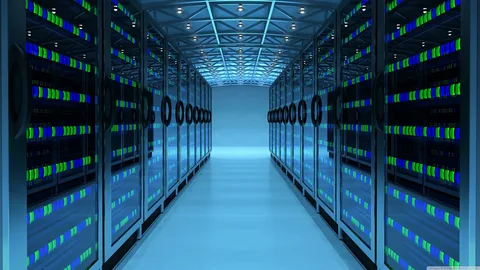
Data encompasses everything crucial to modern operations, from customer information and transaction histories to proprietary product plans and internal communications. Given the critical importance of this information, ensuring its security has become an undeniable priority.
Storage servers are specifically designed for secure data management and provide the backbone for any effective data security strategy. They offer a layer of protection, stability, and control that few other systems can match. But what makes them essential?
This article delves into why storage-type servers should be your top priority for data security, highlighting their unique advantages in safeguarding your data against internal and external threats.
Enhanced Control and Customization of Data Security
One of the primary advantages of using dedicated storage servers is their level of control. When you rely on cloud storage or third-party solutions, your data security largely depends on the measures taken by the provider. On the other hand, dedicated storage servers allow for customization according to specific security needs.
With storage servers, you can establish multi-layered security protocols tailored to your organization’s requirements. This includes the ability to:
- Define access controls: You can customize who can access certain data types, reducing the risk of unauthorized access.
- Implement encryption protocols: Storage servers often allow for data encryption at rest and in transit, which is critical for safeguarding sensitive information.
- Set backup and recovery policies: You can dictate backup schedules, set up replication, and ensure data is stored redundantly to avoid loss during disasters.
This control is vital in creating a data security environment as strong as it is flexible, giving businesses the autonomy to implement policies that make sense for them.
Improved Data Accessibility Without Compromising Security
Data accessibility and data security are often seen as opposing forces. Increasing accessibility can open doors to unauthorized access while tightening security may impede efficiency. However, storage servers strike a balance between these two needs.
With a dedicated storage server, your team can quickly access the information they need while maintaining robust security measures. Access controls can be fine-tuned to limit exposure to only those needing the data. For instance, role-based access protocols ensure that sensitive data is only accessible to employees with specific roles, thereby minimizing potential breaches.
Furthermore, storage servers can allow remote access under controlled conditions, which is especially useful for hybrid or fully remote teams. Advanced solutions can even integrate VPN or two-factor authentication, ensuring secure access regardless of team members’ location. This ensures productivity without compromising the integrity of your data security protocols.
Centralized Data Storage and Enhanced Monitoring
Storing data on individual devices or scattered locations increases security risks and makes it more challenging to enforce uniform security policies. A dedicated storage server centralizes your data, creating a single access point for storage and management. Centralization significantly enhances the visibility and monitoring of data access and activity.
Centralized storage servers can be configured to log all access activities, providing real-time insights into who is accessing what data and from where. Monitoring is crucial for detecting unusual activities, such as repeated access attempts or unauthorized access from unrecognized locations.
Additionally, many storage servers offer the integration of SIEM (Security Information and Event Management) systems. SIEM platforms can analyze logs from your storage server to spot potential security threats in real-time. By consolidating data in a central location, you improve your chances of quickly identifying and neutralizing threats.
Advanced-Data Backup and Disaster Recovery Capabilities
Data loss can occur from various factors beyond cyber threats, including hardware failure, natural disasters, or human error. A solid disaster recovery plan is indispensable, and dedicated storage servers offer robust backup solutions to protect against data loss.
Storage servers can provide automated, regular backups to ensure that the most recent versions of your data are always accessible. They also support features like redundancy and replication, which duplicate data in multiple locations or drives. This redundancy ensures that even if one server fails, the data remains accessible from another source.
For businesses with compliance requirements, such as those in the healthcare or financial sectors, storage servers can also support regulatory needs. They can help ensure that data retention policies align with industry standards, keeping you compliant while maintaining data integrity.
Conclusion
Regarding data security, dedicated storage servers provide a solid foundation that enhances control, compliance, scalability, and resilience. They allow organizations to build a security framework tailored to their needs, minimizing risks and ensuring peace of mind.
As your organization evaluates its data security strategy, consider the unique benefits of storage servers. By prioritizing them in your security plan, you’re investing in protecting valuable information and securing the trust of clients, stakeholders, and partners.
Must Read: 8 Reasons Why Edge Computing is the Future of Data Processing